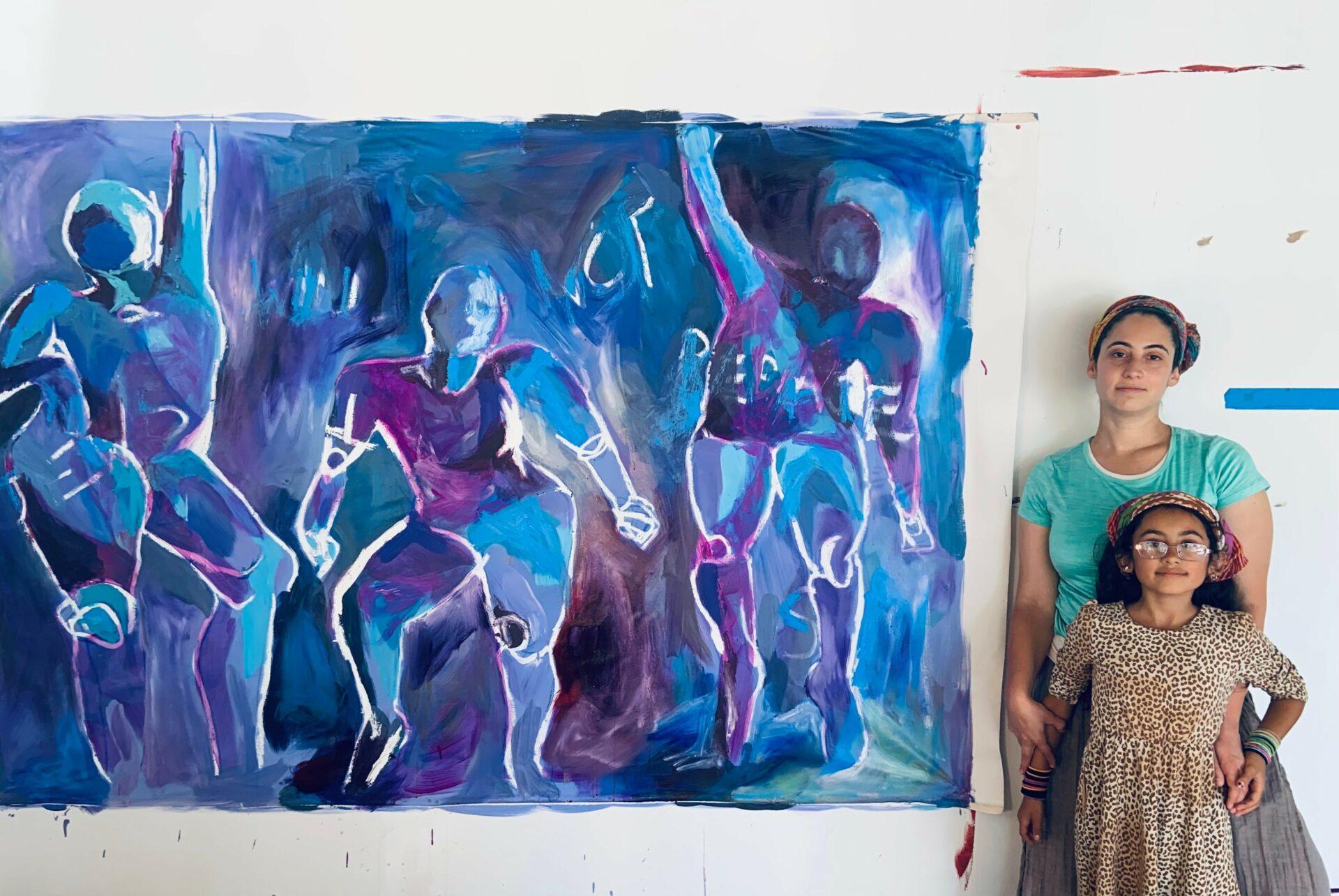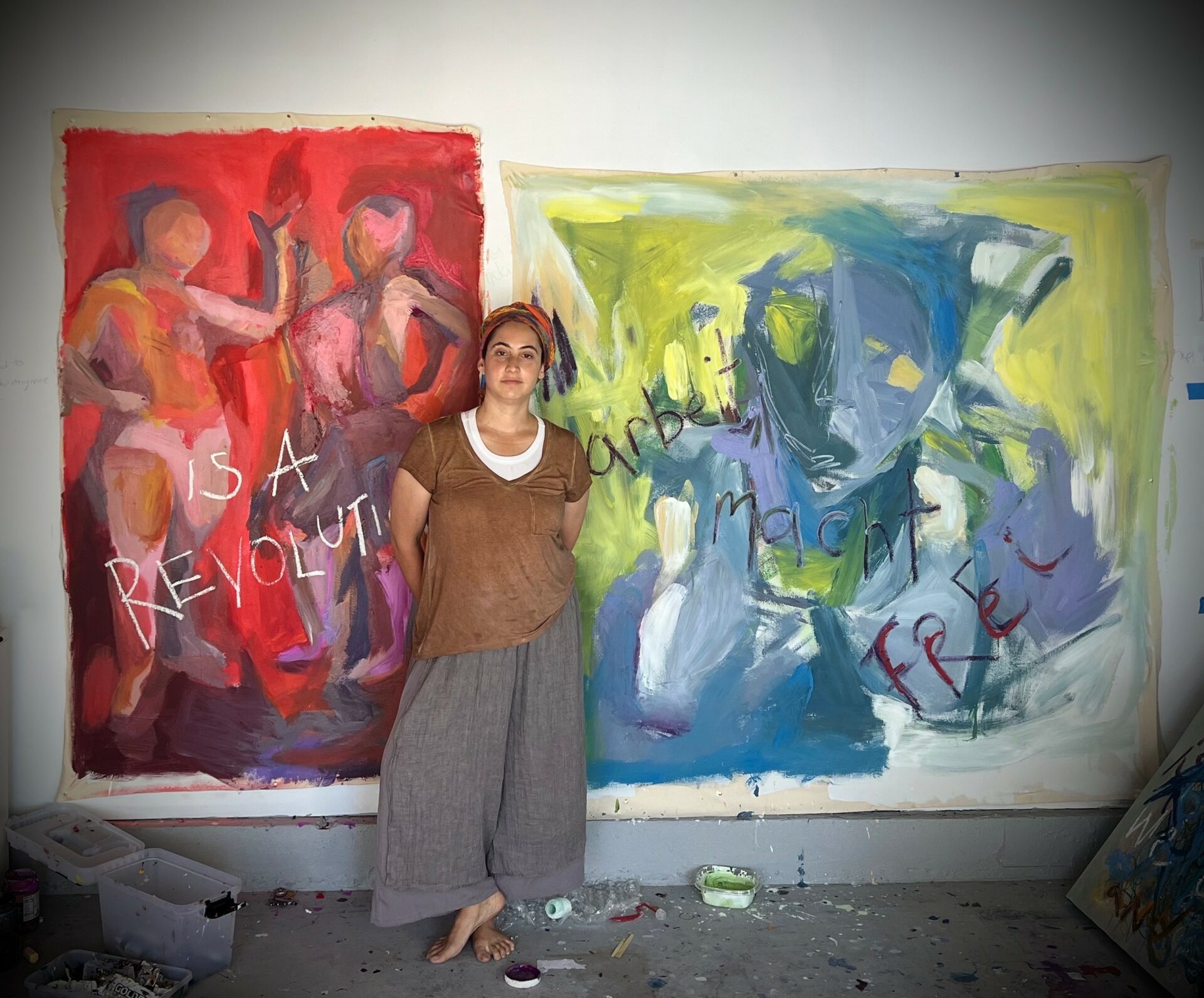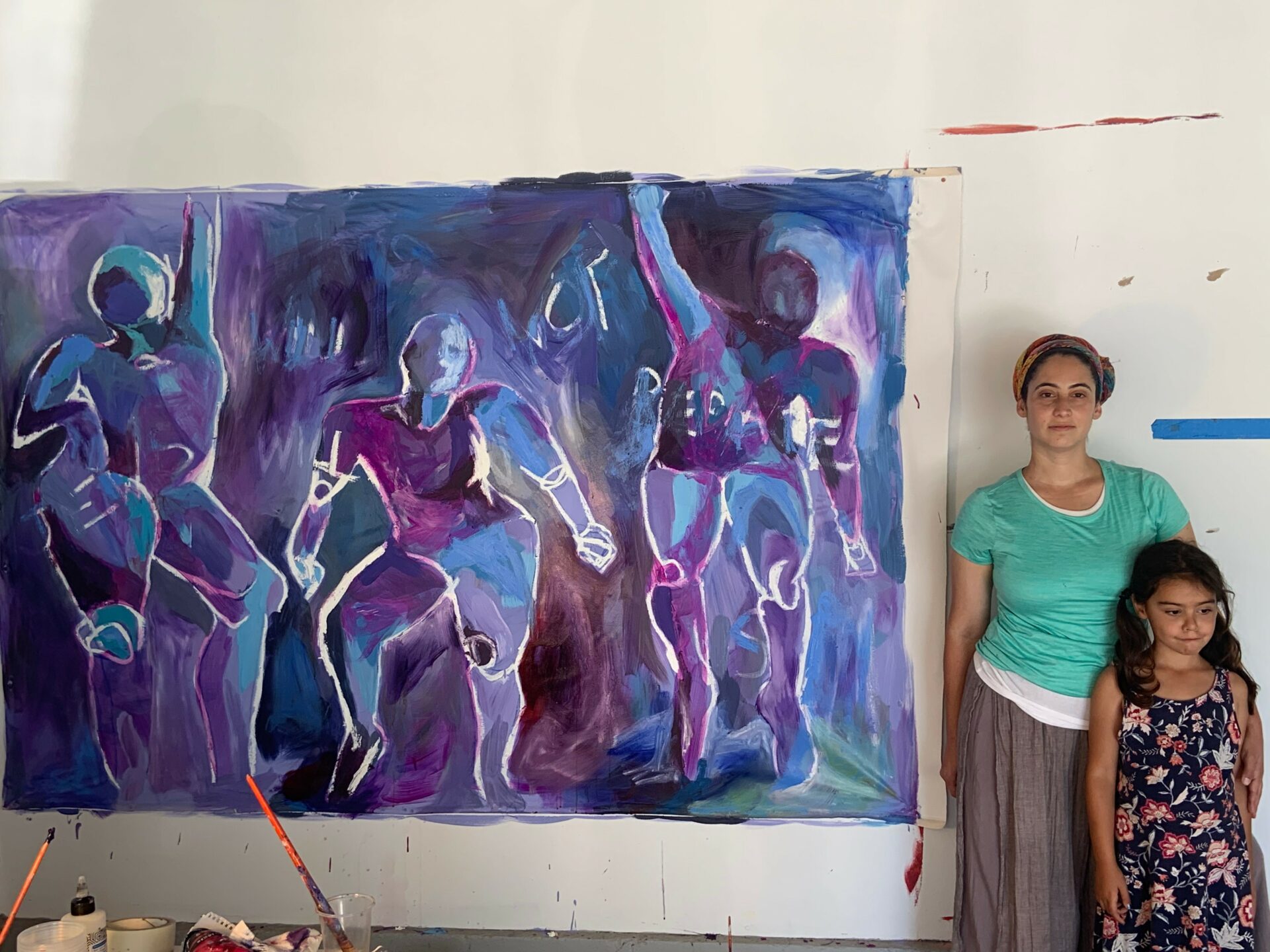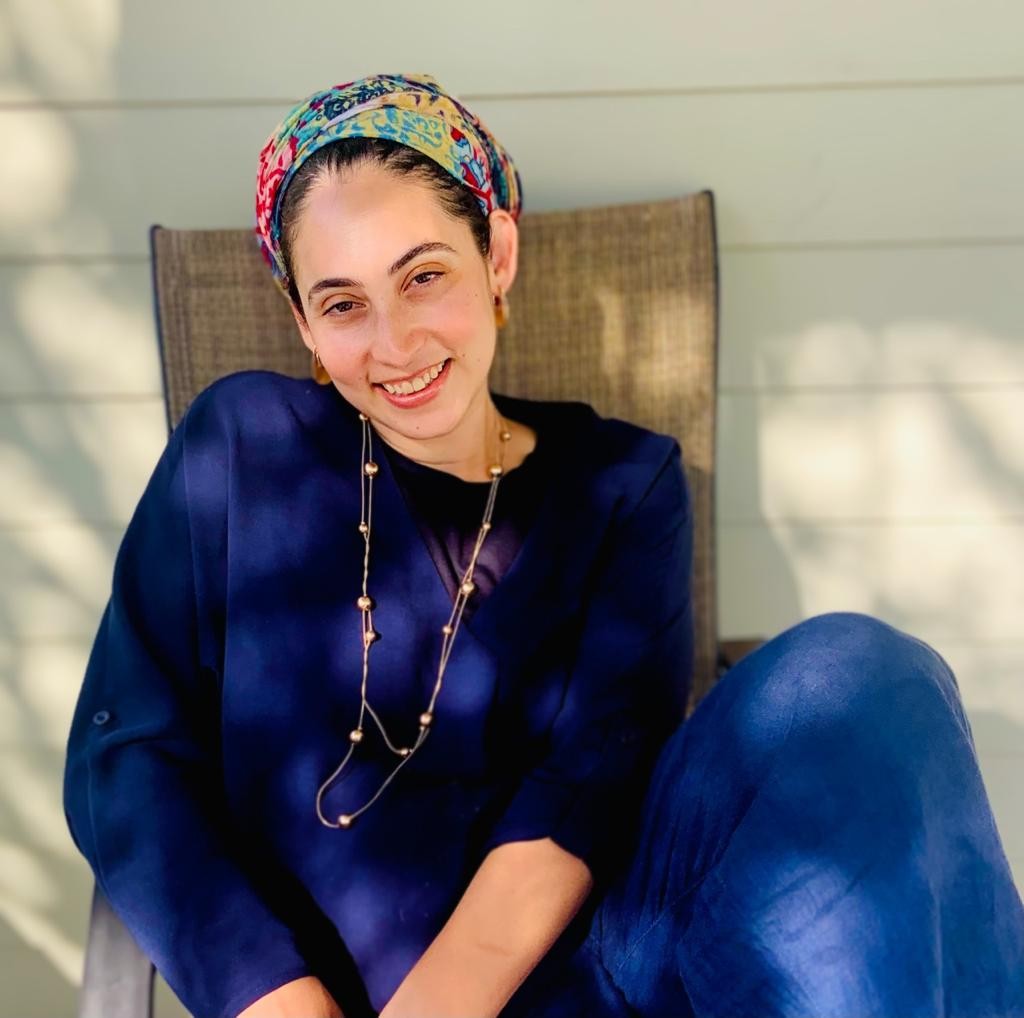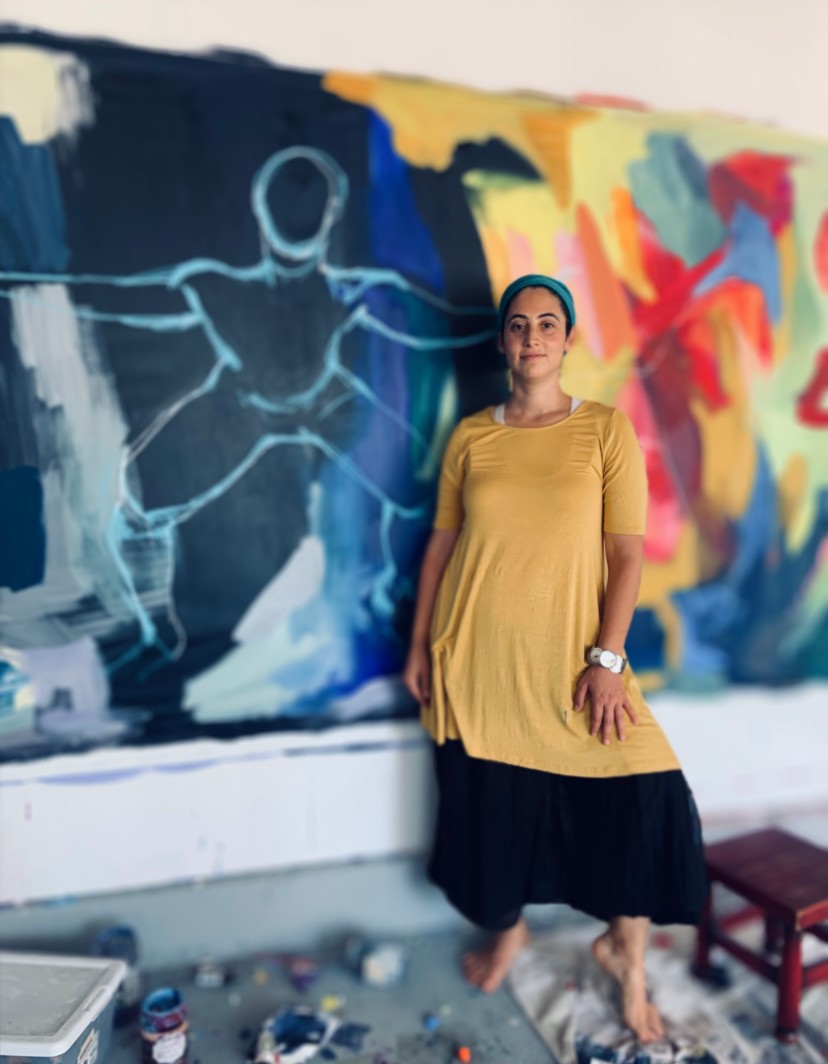We recently connected with Rivka Nehorai and have shared our conversation below.
Hi Rivka , you’ve got such an interesting story, but before we jump into that, let’s first talk about a topic near and dear to us – generosity. We think success, happiness and wellbeing depends on authentic generosity and empathy and so we’d love to hear about how you become such a generous person – where do you think your generosity comes from?
I believe that artists are by nature generous people; we get filled with an idea and then feel utterly compelled to put this idea into action, in order to share it with others. The engine of the creative act is a desire to give to others something that we hope will nurture their spirit, whether it by pushing them to think deeper or to view lofe differently.
Yet something as amazing as the gift of creativity can be so easily tainted. As artists in a capitalist world, art often becomes a spade with which to dig fame, fortune, and power, as we feel the pressure of survival and competition weigh down on us.
I remember a conversation I had many years ago with an artist mentor of mine. I was grilling her on ideas for how to make more money with my art. She paused the conversation and added softly, “Art is a privilege.”
That sentiment stuck with me. Not that making money isn’t important, but that I should view art and my ability to make it as a gift. That humility and awe and gratitude is essential to the artmaking process.
I believe that artists have sensitive souls that are in great need of nurture. In order to be generous towards others, we need to be exceedingly generous and nurturing towards ourselves. That means giving ourselves time to play with our art and with our life. Giving ourselves time to sit and observe. An artist soul cannot thrive in a fast paced, high pressure life. But if we are giving towards ourselves to create a nurturing, pleasureful life, we will have the strength and creativity to produce work that will impact others.
Thanks, so before we move on maybe you can share a bit more about yourself?
I am just returning to painting after a year off; I struggled for from 2022-2023 with Long Covid cognitive challenges. During that time, my mind had trouble understanding how to make art. I no longer had access to the intuitive, creative decision making I had cherished for so long.
I am grateful to be returning to health, and have just started to commit to a daily painting practice, which I do after my hour long meditation practice that was instrumental in my Long Covid recovery.
I also have a show opening at the UCLA Student Hillel entitled, Body, Illuminated: Finding Strength in the Human Spirit. It encompasses art I made in the last four years, from the chaos of Hasidic Brooklyn to the uneasy bliss of Southern California, through a worldwide pandemic, the fog of Long Covid, and the devastating present.
Throughout it all, the show returns continuously to the theme of the power and glory of the body and its ability to heal us.
There is so much advice out there about all the different skills and qualities folks need to develop in order to succeed in today’s highly competitive environment and often it can feel overwhelming. So, if we had to break it down to just the three that matter most, which three skills or qualities would you focus on?
I think one of the most beneficial things in my artmaking has always been listening to myself. I’ve have a few mentors who believed in me, but many others who didn’t. I ask myself what I found beautiful, what I found interesting, rather than weigh others’ opinions too heavily. Our art is about how we process the world, a dialogue we have within us, and we need to protect that inner trust and respect at all costs.
Awesome, really appreciate you opening up with us today and before we close maybe you can share a book recommendation with us. Has there been a book that’s been impactful in your growth and development?
I love thé book “If You want to write” by Brenda Ueland, which is applicable for any kind of artist.
Though she wrote in the 1930s, Ueland believed it was essential for women to prioritize their creativity. How could you encourage your children’s creativity, she wondered, if you don’t nurture any of your own?
If you close your door and tell your kids you are working on your play, your kids will all become playwrights, she said.
That book is such a gem! Plus it’s so fun to read.
Contact Info:
- Website: Rivkagallery.com
